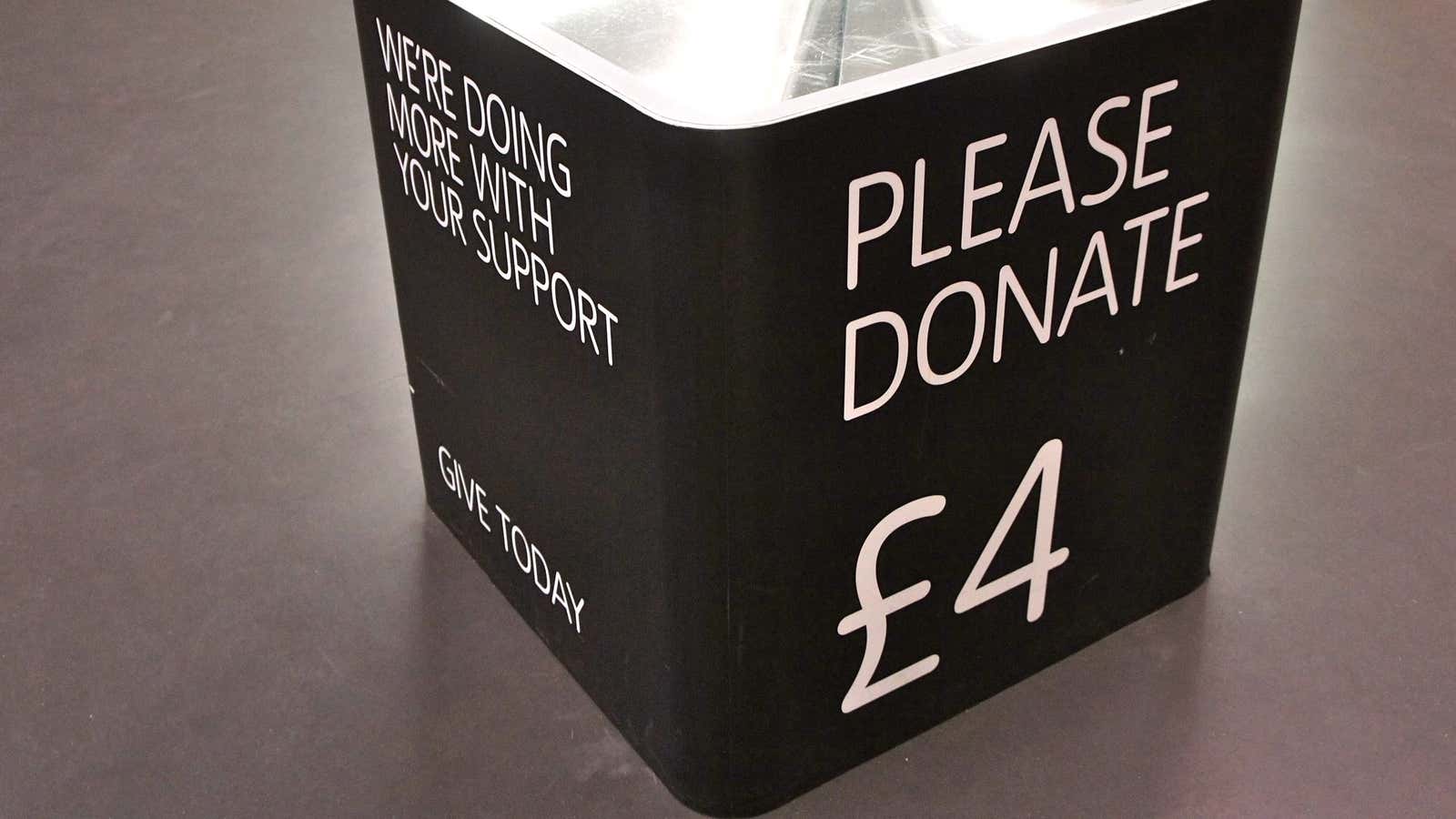The renowned Y Combinator accelerator started funding non-profits in 2013, arguing they would benefit from the same training as conventional startups. They are now part of every batch of YC companies. Founders and venture capitalists, long skeptical of charity, are increasingly giving to startups in which the earnings are small, but the social impact is high (and the 501(c)(3) donations are tax deductible).
Today, the number of tech non-profits worldwide is reaching record highs, says Shannon Farley, the co-founder of the nonprofit accelerator Fast Forward. Starting with Benetech which built reading machines for the blind in 1989, the organization is now tracking about 300 non-profit tech startups. The numbers have grown about 15% per year since 2012.
Nonprofit tech startups differ from conventional charities because ”software or hardware has to be at the core of the good they do in the world,” Farley said. It’s not enough to simply use technology; these companies must apply technology to make formerly expensive, difficult or impossible things accessible for the non-profit sector (or people in need).
One of FastForward’s first companies, One Degree, applied Yelp’s model to social services. Recipients once had to page through outdated paper directories in libraries, prisons or a handful of public buildings to find food assistance, housing and healthcare. Now Bay Area residents only need to open their phone, or go online, to know what’s available and how to access it—a model that will soon go national.
At Fast Forward’s demo day on Sept. 16, nine companies in the accelerator class raised $1.8 million in philanthropic funding, including one company, Think of Us, started by a former foster child who moved between seven homes growing up. His nonprofits gives foster children an online network of mentors, supporters and family members to help make the transition to adulthood.
Here are all the Fast Forward teams that presented this week:
- CommonLit provides full digital curriculum to teach children to read
- Democracy Earth has built out a blockchain-based voting platform
- Hack Club is creating coding clubs to reach children studying computer science in over 100 high schools
- Learn Fresh combines NBA role models and sports-based games to teach math
- Intelehealth built an open-source intelligence engine for assessing primary care conditions
- JustFix.nyc helps tenants build legal cases in neglectful housing situations
- Open Media Project is a self-service transparency platform for small local governments
- Think of Us gives foster children a place to access advice, mentors and support in the transition to adulthood
- We the Protesters launched a Contact Your Representative tool and an interactive Use of Force Report detailing use-of-force policies in 91 police departments, and how these reduce killings
The image above was taken by Yukiko Matsuoka and shared under a Creative Commons 2.0 Generic license on Flickr.
